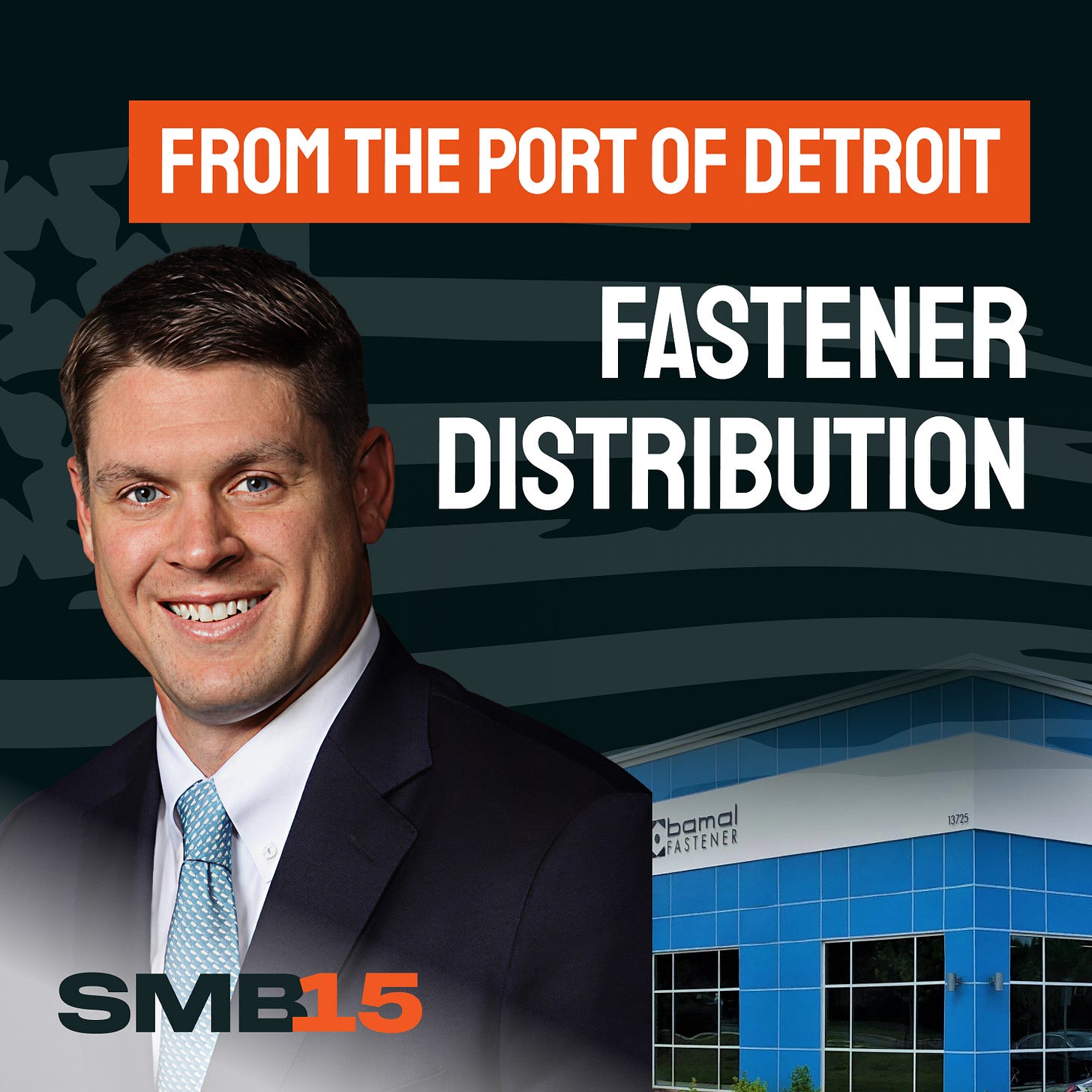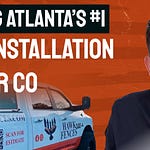Listen now on Spotify or YouTube.
Kyle Miller is part of a third-generation family business that started in the 1950s supplying parts to ships in the Port of Detroit. Fast forward 70 years, the company is now headquartered out of Charlotte, NC and primarily focuses on distributing fasteners across a wide range of applications. In this episode, we get into the history of Bamal Fasteners, life working with your brother and father, how they scaled Bamal 5x through acquisitions, and how Kyle is now using that experience to invest in other small business acquisitions.
Some takeaways:
Growth through acquisition: Kyle leads Bamal’s inorganic growth efforts, snapping up small distributors across the country. The industry lends itself towards M&A. It’s capital intensive to build up inventory from scratch. Many customers are looking for local sources of supplies. Most clients have quality departments that need to vet each part. Buying an existing distributor allows you to inherit a client base that’s already approved the parts being distributed.
Target add-ons that can fail safely: Bamal looks for targets doing $5–15M in revenue and 15–20% margins. That way, even if a deal underperforms, it won’t sink the business. As Kyle says, “maybe a shot to the leg, not a shotgun to the chest.”
Tariffs become a force majeure item. Distribution is a mature industry, with relatively low margins and decent inventory requirements. Pulling forward inventory ahead of a tariff going into effect requires a lot of working capital. It’s generally not feasible, plus you’re left banking on demand remaining constant to turn the inventory over. The better approach is to just ride it out.
Offshoring drained a lot of talent from the Midwest. The move to Charlotte was partly motivated by chasing qualified talent. The average education level in their previous county in Ohio was 11.5 grades, a half year shy of a high school diploma. Between jobs going to Mexico via NAFTA and getting offshored to China, the talent pool in the Midwest has worsened over the years.
Decoupling from China will take years. For most customers looking to decouple supply chains from China, they’re looking at a 4-5 year process to get a new plant up and running, plus millions of dollars in capex. It may happen, but it won’t be during Trump’s term.
Diversifying from distribution. The family business exposed him to real-world M&A and gave him the confidence to start investing in SMBs on the side. Now, he holds minority stakes in a number of SMBs, including a marketing agency.
Advice to prospective SMB investors. Kyle wishes he began investing in SMBs 10-15 years ago. His advice to folks considering the asset class is to “just get in the game”. You’ll learn more writing a small check into one deal than you can learn from years of reading about it.
Where to find Kyle & Bamal Fasteners:
Website: https://bamal.com/
In this interview, we dive into:
0:00 Intro to Kyle Miller
0:35 Growing Up in a Family Business
1:53 History of Bamal
3:20 Family Dynamics
5:07 Leaving Detroit
6:46 From $100M to $10M—and Back Up Again
8:02 Impact of Tariffs on a Global Supply Chain
10:06 Growth through Acquisition
12:27 Kyle’s Small Business Portfolio
14:37 Coming Up to Speed on New Industries
15:10 Building a Minority Investment Portfolio
16:17 Advice for New SMB Investors















Share this post